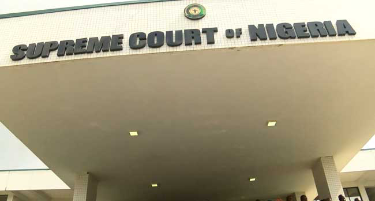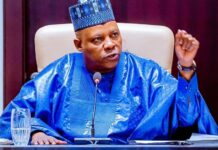The Supreme Court of Nigeria has reserved judgment in a significant case involving the Federal Government and the 36 state governors over the issue of granting full autonomy to the country’s 774 local government areas. Justice Garba Lawal, addressing the parties involved, stated that they would be notified once the judgment is ready. This announcement followed the adoption of legal processes submitted by the Attorney General of the Federation (AGF), Lateef Fagbemi, representing the Federal Government, and the legal representatives of the 36 state governors.
At the Thursday proceedings, the AGF implored the court to grant all the reliefs sought by the Federal Government. The core of the Federal Government’s argument is the pursuit of full autonomy for local governments, positioning them as an independent tier of government. Lateef Fagbemi, a Senior Advocate of Nigeria (SAN), initiated this legal action against the state governors, arguing that local governments should operate autonomously without undue interference from state governments. This includes preventing state governors from dissolving democratically elected local government councils unilaterally and unlawfully.
However, the state governors, through their respective Attorneys General and Commissioners for Justice, opposed the Federal Government’s request. They argued for the dismissal of the suit, suggesting that granting such autonomy to local governments would undermine the current federal structure.
This legal battle touches on the broader debate about federalism and the distribution of power within Nigeria. The Federal Government’s stance is that local government autonomy is necessary to enhance governance at the grassroots level and ensure that local councils can operate independently, thus improving service delivery and accountability. On the other hand, state governors argue that local government autonomy as proposed contradicts the principles of true federalism.
Anambra State Governor, Chukwuma Soludo, a former Governor of the Central Bank of Nigeria, articulated this opposition at The Platform Nigeria, an event organized by Covenant Nation to mark Democracy Day 2024. Soludo argued that local government autonomy contradicts the principles of federalism. He said, “Funny enough, more recently, some people are arguing for the autonomy of local governments including some APC persons, which would take Nigeria back many decades from what a true federation is about. There is no federal system in the world where you have three federal units. The counties in America where we copied (democracy), their local governments don’t go to the centre to collect money directly. Each state must have the power to design the kind of local government system they want. That is what true federalism is about.”
Soludo’s comments reflect a broader concern among state governors that local government autonomy might undermine their authority and disrupt the current balance of power within the federal system. He emphasized that in a true federal system, states should have the authority to organize their local governments according to their unique needs and circumstances, without interference from the federal government.
The argument against local government autonomy is also rooted in concerns about the practicality and effectiveness of such a system. Critics argue that local governments might lack the capacity and resources to function independently and that such a move could lead to inefficiency and increased bureaucratic overhead. They believe that a more decentralized approach, where states retain control over local governments, is more suited to Nigeria’s diverse and complex political landscape.

As the Supreme Court deliberates on this matter, the outcome will have significant implications for Nigeria’s federal structure and governance. If the court rules in favor of the Federal Government, it could set a precedent for the restructuring of local government administration, potentially leading to greater independence and accountability at the grassroots level. Conversely, a ruling in favor of the state governors could reinforce the existing power dynamics, ensuring that states retain control over local governments.
This case also highlights the ongoing struggle to define the balance of power in Nigeria’s federal system. While the Federal Government seeks to enhance the autonomy of local governments to improve governance and accountability, state governors are keen to maintain their authority and control, arguing that this is essential for true federalism.
The Supreme Court’s forthcoming judgment will not only resolve the immediate legal dispute but also shape the future of federalism and local governance in Nigeria. It remains to be seen how the court will navigate these complex issues and what the long-term implications of its decision will be for Nigeria’s political and administrative landscape. As stakeholders await the judgment, the debate over local government autonomy continues to be a pivotal issue in the discourse on federalism and governance in Nigeria.




